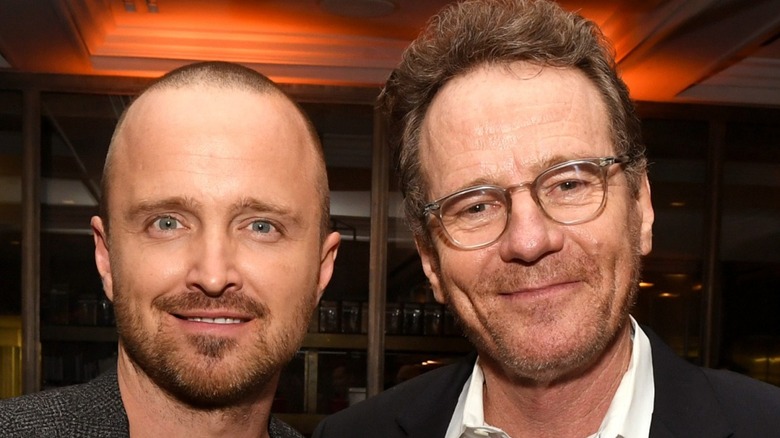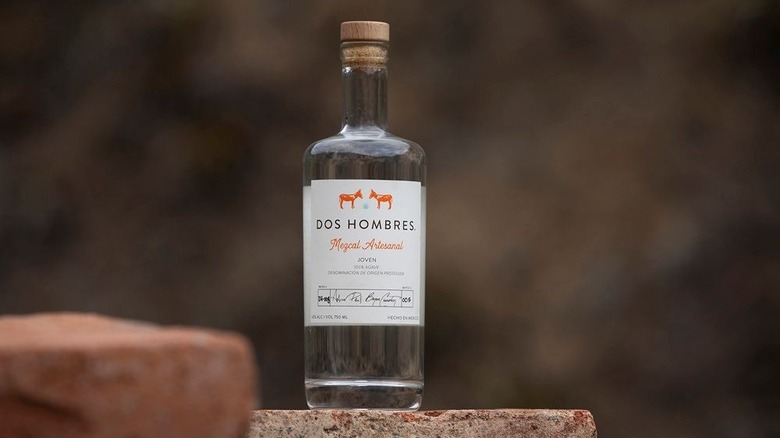Why The Breaking Bad Stars' Alcohol Brand Is So Sustainable
The mezcal industry faces a long list of sustainability issues. First of all, the spirit comes from agave piñas, which take roughly 10 years (or longer) to grow mature enough for mezcal production. "Once you harvest them, they're gone," Tio's Cerveceria co-owner and mezcal enthusiast Alex Dowd explained to Gourmet Traveller. This fact has become especially clear in recent decades, which have seen mezcal explode in popularity. In Mexico, wild agave plants are disappearing due to overharvesting, according to Liquor.com.
Mezcal production, which has traditionally been a high-labor, low-yield process done by mezcaleros rather than machinery, is currently overwhelmed by increasing demand. The spirit requires extensive timber, water, and experienced manpower per high-quality bottle — and there is outside pressure to replace this artisanal tradition with shortcuts. Dos Hombres, a celebrity alcohol brand that's perfect for "Breaking Bad" fans (in that it's made by a third-generation mezcalero, along with actors Bryan Cranston and Aaron Paul), is aiming to preserve traditional mezcal techniques with its sustainability initiatives.
Dos Hombres is reusing water and replanting agave
In a press release shared with Mashed, Dos Hombres detailed the steps it's taking to minimize its mezcal production's environmental impact. First on the list is water. Per Liquor.com, a single bottle of mezcal can produce up to 12 liters of "waste liquid," an acidic substance that harms the local rivers upon which processing plants are usually built — and in turn, the people and wildlife that rely on this water. As a solution, Dos Hombres built a water filtration system for the residents of San Luis del Rio, where the brand's mezcal is produced. Additionally, the company will treat and reuse the water it requires to cool its copper distillation vessels.
Dos Hombres is also addressing agave's non-cyclical lifespan. For every Tobala, a wild agave that takes 25 years to mature, the brand uses, it will plant two more. That way, both the role that agave plays in the local ecosystem and the further production of mezcal will be ensured. Other brands, according to Liquor.com, are taking similar steps, ensuring that workers' wages, community impact, raw materials, and other facets of the production process help push mezcal toward a more sustainable future.

